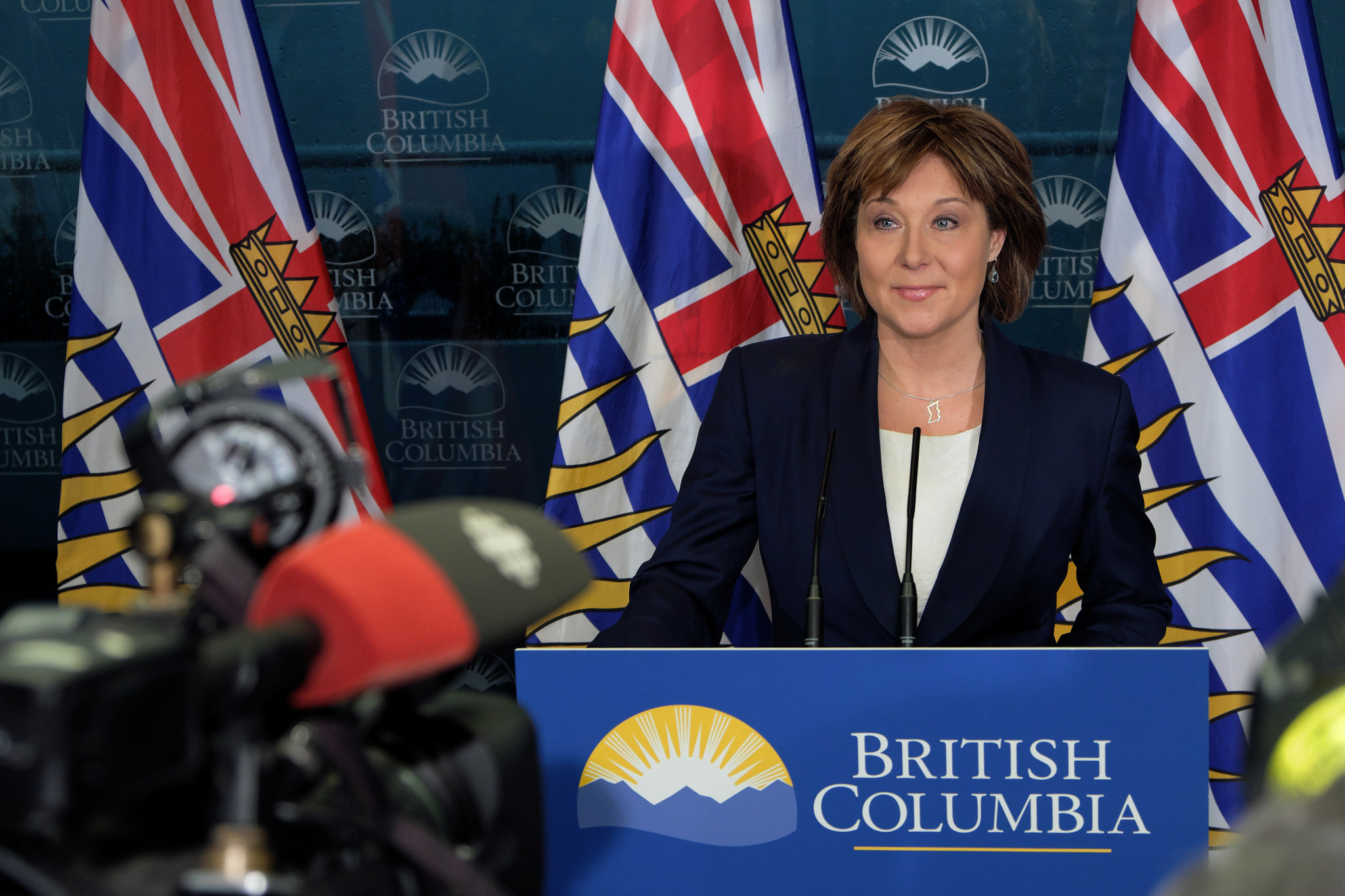Kinder Morgan’s controversial Trans Mountain pipeline is pitting First Nations and climate science against industry and the federal and B.C. governments. rabble’s Alyse Kotyk is investigating how TMX will impact British Columbians in the lead-up to the May election. Read her preceding pieces here and here.
The B.C. Liberals are under scrutiny for accepting significant donations from lobbyists, including those connected to the controversial Trans Mountain pipeline expansion project, sparking an RCMP investigation.
According to Dogwood, a grassroots advocacy group, some of these sizeable donations have come from individuals connected to Kinder Morgan, only furthering their concern that the B.C. Liberals’ support of the energy company’s Trans Mountain pipeline was given with a conflict of interest.
“We’ve got a system that opens us up to influence peddling that puts a cash price on decisions that need to be made by the provincial government,” Kai Nagata, communications director for Dogwood told rabble over the phone.
“We have a situation like Kinder Morgan where the B.C. Liberals had one position, and $771,000 later, they managed to reverse their position.”
According to Nagata, this financial influence can have significant ramifications in B.C.
“Putting a price tag on policy is dangerous for democracy and for the province if the projects being approved don’t receive the proper scrutiny as a result,” he said.
Big Carbon’s favourite political party
These alleged ties between political contributions and support for energy companies have continued to be an issue for activist groups leading up to the May 9 election. A report from the Canadian Centre for Policy Alternatives‘ Corporate Mapping Project revealed that 48 fossil fuel companies and industry groups donated $5.2 million between 2008 and 2015. Of these donations, 92 per cent of the funds went to the B.C. Liberals.
“Clearly these corporations are profit-oriented,” Bill Carroll, co-director of the Corporate Mapping Project, told rabble by phone. “So when they make political contributions, these are investments.”
These investments, he said, are often in the hopes of seeing tangible results from the political party the corporations or lobbyists are donating to.
“It’s trying to put in power — or keep in power — a party that is generally sympathetic to its overall perspective,” he said. “The B.C. Liberals are pro-business, so it’s not surprising that they get 92 per cent of the total contributions from the carbon sector corporations.”
On a wider scale, Carroll also pointed to concerns for what these donations mean for the environment.
“Of course there are concerns about democracy in all of this but there are also concerns about, what we call, ‘the new denialism’ in climate change politics. It’s not an overt denialism,” he said.
“The new denialism, is foot-dragging, basically. But you can see the traces of this foot-dragging in some of these relationships in political party contributions and in the role of Big Carbon funding a party that makes some gestures towards policy in the area of climate change, but doesn’t seem to be very serious about it.”
About-face from the Liberals
Sustained public pressure from advocacy groups and public opinion has even forced Christy Clark to reverse her government’s earlier position that election financing in the province was in little need of reform. This week, the B.C. Liberals tabled legislation to increase reports of contributions to political parties.
Premier Christy Clark announced Monday that the provincial government was introducing “real time reporting of contributions” by requiring major political parties, candidates and constituency associations to release information on contributions they receive to Elections B.C. within 14 days. “We intend to strengthen transparency, which is a core principle of our system,” she said in a press release about the new legislation.
Democracy Watch, a national non-profit, non-partisan organization, says the new legislation doesn’t go nearly far enough. They want to see a limit to donations and a ban on corporate contributions — something both the B.C. NDP and B.C. Green Party have called for.
“The B.C. Liberals’ donation disclosure bill is too little, too late and, even if it is enacted before the election, no one should believe Premier Clark’s likely false claim that future changes are possible,” said Duff Conacher, co-founder of Democracy Watch in a press release.
“If the B.C. Liberals were serious about changing the province’s unethical, undemocratic political donation system, they wouldn’t have spent the past year dishonestly claiming that the current system is fine and rejecting changes proposed by the opposition parties and many others.”
Alyse Kotyk is a Vancouver-based writer and editor with a passion for social justice and storytelling. She completed her undergraduate degree at Queen’s University and studies journalism at Langara College. Alyse was the editor of Servants Quarters and has written for the Queen’s News Centre, Quietly Media and the Vancouver Observer. She was rabble’s 2015-16 news intern.
Please chip in to keep stories like these coming.
Image: Flickr/bcgovphotos



